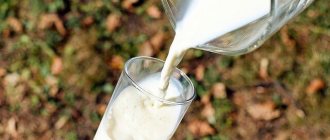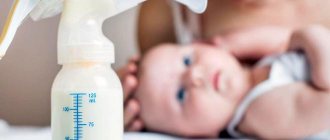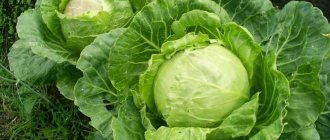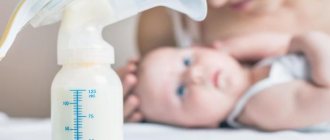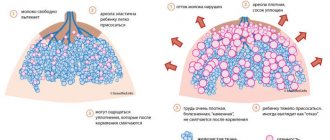No food for a baby is as healthy and valuable as breast milk. Mother's milk contains all the nutrients a baby needs: proteins, carbohydrates, minerals, vitamins. Moreover, the proportions of all substances in breast milk are ideal, due to which the milk is perfectly absorbed.
An indicator that the milk is completely digested is the absence of stool for 24 hours, although the child feels fine and is not worried.
A woman who is determined to breastfeed her baby without resorting to artificial feeding tries to make sure that there is enough milk for the baby’s normal nutrition.
Often, from the very first days, she begins to take tea to improve lactation, for example, “Granny’s Basket”, Hipp, Lactavit, Amliak. Let's look at the reasons for a possible decrease in the amount of breast milk.
Tea to increase lactation
Most drugs that stimulate the functioning of the mammary glands in nursing women are based on medicinal herbs with a lactogenic effect. The set of components can be different - based on one or several herbs, with additional additives in the form of vitamins, macro- and microelements. The release forms also differ; lactation tea can be granulated, bagged, or loose.
Important! Most lactogenic drinks should not be taken by pregnant women, only after childbirth, as some herbs can unpredictably affect the course of pregnancy and even cause miscarriage.
You can prepare a drink that stimulates milk production at home. A wide selection of lactation teas allows you to choose the appropriate option based on the condition of the mother and child.
When is tea really needed?
Breastfeeding experts identify only three situations when a mother really needs to resort to drugs that stimulate lactogenesis.
- Forced break in natural feeding of the baby. It occurs for various reasons - a woman taking medications that are unsafe for the child or not taking them. Drinking lactogenic tea will help restore the normal process of breastfeeding.
- Mixed type of feeding. Often women introduce complementary feeding too early. The reason for this may be your own initiative or the recommendation of “experienced” mothers. Complementary feeding contributes to the suppression of lactation, so natural feeding can be restored through lactation tea.
- Lack of milk. Its signs were indicated above. If a deficiency is confirmed, the baby is temporarily transferred to mixed feeding, and the woman is prescribed tea for lactation. Additionally, they may prescribe regular massage of the mammary glands, review of the menu, and frequent breastfeeding. In most cases, the mother manages to return to natural feeding.
Thus, herbal teas to improve lactation cannot be used just on a whim. Unreasonable use of such drugs is fraught with hyperlactation, which leads to unpleasant sensations in the chest, congestion and increased colic in the child.
How to choose tea for lactation?
There is no exact answer as to which tea is the most effective. The effectiveness of all products based on natural raw materials is approximately the same. Most of them contain medicinal herbs with a lactogenic effect:
- basil;
- ginseng;
- horse chestnut;
- alfalfa;
- seaweed (kelp);
- fenugreek;
- rosemary;
- caraway;
- fennel.
The main criterion for selection, given the approximate equality of effectiveness of products from different manufacturers, is, firstly, the absence of individual intolerance, allergies to the herbs included in the tea, and secondly, the price category, because lactogenic decoctions are usually prescribed in long courses.
It should not be surprising that even a nursing mother should take herbal tea only after consulting a doctor. Only a qualified doctor will select the best tea for lactation. He will prescribe a drug that is suitable for its composition, based on other characteristics of your body, so that tea can help with other health problems not related to breastfeeding:
- fennel and chestnut help fight constipation;
- rosemary and lemon balm relieve increased irritability;
- alfalfa lowers cholesterol and blood sugar;
- ginseng has a general tonic effect (we recommend reading an interesting article on preparing ginseng tea);
- Laminaria is an excellent source of iodine in case of iodine deficiency.
How herbs affect lactation
Despite its completely natural composition, tea to stimulate lactation should be chosen very carefully. If the wrong herb is in the collection, the result of the drink will be exactly the opposite.
So, which plants have a lactic effect:
- oregano;
- lemon balm;
- nettle leaves;
- dill and caraway seeds;
- lemon verbena;
- dandelion;
- blackberry leaves;
- goat's rue;
- shepherd's purse grass;
- dog-rose fruit.
In addition to the bright lactogenic effect, all the plants considered have many other beneficial properties that support and strengthen the woman’s body.
How to drink tea for lactation
When drinking tea to increase lactation, you should follow the doctor's instructions and follow the instructions, since this is not just a drink, but a medicine.
During use, you need to carefully monitor your well-being in order to notice the appearance of side effects or allergic reactions in time. If you notice any ailment from the list of side effects, you should stop taking the tea and consult your doctor.
Note! You should not take tea to increase lactation for more than a week, especially if this is not a doctor’s prescription, but an independent decision to “drink something.” Do not exceed the dosage as this may cause allergies or serious side effects.
At the same time, you should carefully monitor milk production and avoid excess. Producing excess milk can also cause health problems.
It is best to drink lactation tea warm, this causes the body to produce oxytocin. This hormone facilitates the “travel” of milk through special ducts in the breast of a nursing mother.
This video provides an overview of several popular brands of lactogenic teas (“Lactaphytol”, “Babushkino Lukoshko”, “Dill Herbal Tea”, “Laktomama Evalar”):
Ready drinks
Women who want to improve lactation can buy several types of ready-made drinks. Which one is the best? Manufacturers offer herbal drinks in bags or granulated herbal tea.
Of course, you need to pay close attention not to the form of the product, but to the recipe and the plants included in the composition.
"Hipp"
The manufacturer (German company) offers the widest selection of lactogenic drinks.
Women can brew the mixture in bags or granules. "Hipp" includes recipes tested by many generations of nursing mothers. Reviews from women about the “Hipp” product demonstrate that the drug not only stimulates the secretion of milk secretions, but also accelerates the body’s recovery after childbirth.
"Hipp" contains the following herbal components:
- lemon balm leaves;
- caraway seeds;
- nettle leaves;
- fennel;
- goat's rue
“Hipp” is recommended to be prepared as follows. Dissolve three to four small spoons of the composition in a mug of boiling water. If you don’t really like the taste, you can add a little more boiled water.
In case of impaired lactation, the plant mixture is taken every day, three times a day. The product is drunk before feeding - approximately a quarter of an hour before meals.
"Laktovit"
Herbal tea is produced by a domestic company that uses the developments of research centers. You can purchase herbal products both in crumbly form and in filtered bags. Which is better and more convenient? It's up to the buyer to decide.
The following herbal substances predominate in the composition of the drug “Laktovit”:
- anise seeds;
- nettle leaves;
- fennel;
- caraway seeds.
Making tea for nursing mothers is quite simple. The bag is steamed with 100 ml of boiling water and left for a quarter of an hour. You need to drink the product 25 minutes before feeding the baby.
Reviews about the infusion are mixed. On maternal forums, the topic of this tea receives quite a large number of negative comments. Some mothers note that the taste of the drink is not the best. The main advantage is the low price of the product.
Humana
The Humana drink is produced by a German company; all its products are certified and of the highest quality. The manufacturer has been present on the European market for several decades.
Humana herbal mixtures to improve lactation do not contain synthetic additives or inclusions. The recipe for Humana tea includes the following herbal ingredients:
- Chinese rose flowers;
- blackberry leaves;
- fennel;
- verbena;
- raspberry leaves;
- shepherd's bagworm;
- fenugreek;
- fennel essential oil.
One Humana container will last a woman about 35-45 appointments.
It’s easy to brew tea – mix a teaspoon with half a glass of boiling water. Drink Humana a quarter of an hour before feeding the baby. The reviews are quite positive. Mothers note that, together with increased lactation, the drink helps reduce colic in the infant. In addition, Humana tea tastes good and is easy to drink.
"Granny's Basket"
The product in sachets from the Russian company cooperates with the Institute of Baby Nutrition; drink recipes promote lactation, tone and strengthen the female body.
Lactation products contain the following herbal ingredients:
- rose hips;
- caraway seeds;
- nettle leaves;
- Melissa;
- fennel.
The manufacturer's products are safe because they do not contain various preservatives, dyes or flavors.
To prepare the drink, brew the bag with a mug of boiled water and leave for 10-15 minutes. You need to drink the product a quarter of an hour before the baby eats.
Nursing mothers generally respond positively to this drink, noting its rather pleasant taste, effectiveness and low cost. However, occasionally there are comments that lactation tea caused dermatitis or indigestion in the baby.
Bebivita
Another drink designed to increase milk production in a woman. Sold in packages. This herbal tea contains several herbal ingredients, for example:
- pink petals;
- cilantro;
- Melissa;
- lovage;
- nettle leaves;
- chokeberry;
- hawthorn.
On the forums, most reviews are positive, since the tea gives good results with prolonged use. However, the product is often criticized for not having a pleasant taste and aroma. Women are advised to neutralize the taste with milk.
Rating of teas for lactation
The rating of teas that stimulate milk production is based not so much on the difference in effectiveness, but on the trust of doctors and customers in a particular brand. Thus, the “best ranking” is actually the “famous ranking.” In reality, consulting a doctor and carefully monitoring your well-being will help you choose which one is best for you.
Hipp
Hipp tea, which increases lactation, is from a German company that has long been known on the market, which has been producing baby food since the 30s of the last century. Release form: granulated drink, tea bags. The product is additionally enriched with vitamins and microelements necessary for nursing mothers. Read more about tea in our article.
Lactaphytol
A collection of domestic production, packaged in bags, 20 individual packages per box. This is just enough for one course of treatment. The tea consists of nettle, caraway and anise seeds, and fennel fruits. Reviews confirm that this composition, in addition to the main effect, relieves symptoms of bloating in infants.
Lactavit
Another Russian tea for nursing mothers, the composition and reviews are completely similar to the previous one. Produced in two versions: bagged and loose.
Lactomama
Lactation tea for nursing mothers from the largest domestic manufacturer of dietary supplements. It contains oregano and lemon balm, which additionally relieve tension, stress, and fight insomnia. The product contains nettle leaves and fennel fruits. The presence of fennel helps fight both insufficient milk production in the mother and gas in the baby. .
Humana
Lactogonic tea from the German company Humana is produced in the form of granules. Raspberries and hibiscus in the product give it a bright pink color and a sour taste. Read the informative article about Humana tea for more details.
Grandma's basket
Herbal tea from a Russian manufacturer (group). Available in packaged form. There are two options - rosehip and anise. The remaining ingredients are the same: caraway and fennel seeds, dried nettle and lemon balm leaves.
Bebivita
Lactation tea for nursing mothers from a German manufacturer. Available in two variations: bagged herbal tea and granulated tea drink.
Milky Way
Product from Russian. Unlike all other drinks on this list, “Milky Way” is not tea; in terms of the method of consumption and composition, it is closer to special sports nutrition, only it is intended not for athletes, but for young mothers. The ingredients may frighten adherents of exclusively natural nutrition due to the presence of a complex of soy protein and dietary supplements.
Laktogon
Herbal tea from Russian. Contains royal jelly, ginger, lemon balm, nettle, mint, carrots, kelp, oregano, ascorbic acid, fennel. It is not recommended to use without a doctor's recommendation if there are problems with thyroid function in the mother or child.
Mom's tea
Packaged herbal tea from Russian. Standard ingredients (fennel, oregano) improve milk problems and help prevent colic in infants.
Review of popular drinks
There are many teas to increase lactation of different compositions and brands. They are produced in filter bags, granules, and in bulk. The following are the most common herbal drinks.
Hipp
The product is produced by a German manufacturer. Hipp tea is absolutely safe for baby and mother. The collection consists of fruits, berries, medicinal herbs, a vitamin and mineral complex necessary for women during breastfeeding. The drink does not contain chemical components (dyes, preservatives), as well as gluten and lactose, and rarely causes allergic reactions.
Hipp tea comes in granules and bags. The first option is much more common. To brew the mixture, you need to pour 1 - 2 m spoons of the composition into 1 tbsp. hot boiled water. Drink the resulting liquid within 15–20 minutes. before breastfeeding the baby. The average price for a package of tea (weighing 0.2 kg) is 300 rubles.
Humana
Another high quality tea is Humana. The drink is enriched with vitamin C, helps normalize the digestive system and strengthen the body's protective functions. Plant components can improve the production of breast milk and prolong the lactation period.
One can (volume 0.2 kg) is designed for 45 servings of the finished drink, 100 ml each. The lactogenic agent must be consumed ¼ hour before feeding the baby. The cost of Humana tea does not exceed 150 rubles.
Lactavit
Lactavit is a domestically produced product designed to improve lactation. Available in individual bags and in bulk, it has a specific taste. The collection contains caraway and anise seeds, nettle leaves, and fennel. The drink stimulates the production of breast secretions, normalizes the functioning of the gastrointestinal tract, calms the nervous system, and has a positive effect on the quality of sleep of the baby and mother.
To brew herbal tea, you need to place a bag with healing contents in a glass with 100 ml of boiling water. Leave for 10 minutes. Consume within 30 minutes. before feeding the baby. A package of Lactavit with 20 sachets will cost mommy 170 rubles.
Grandma's basket
Babushkino Lukoshko is a herbal tea produced by a Russian manufacturer. The drink stimulates lactation, eliminates cramps, bloating, intestinal colic, stabilizes the activity of the gastrointestinal tract, and has a calming effect on the central nervous system.
A tea bag is brewed in a glass of boiling water. Take the resulting product within 15 minutes. before putting the baby to the breast. The average price is 105 rubles.
Babyvita
Bebivita tea for nursing mothers contains chokeberry and hawthorn berries, lemon balm, cilantro, lovage, and rose petals. The drink has a specific taste, but it smells nice. To improve the taste, it is allowed to add a small amount of milk to the brewed mixture.
Tea is prepared according to the standard procedure - a bag of medicinal raw materials is placed in a glass of boiling water. Consume within 20 – 30 minutes. before feeding. The average cost per package is 150 rubles.
Nestik
Nestik is an instant granulated tea with glucose, the effect of which is aimed at stimulating lactation. It has a pleasant taste, helps to calm down and relax. To make the drink, dissolve 1 m of granules (heaped) in a glass of warm boiled water. A jar of herbal tea (volume 0.2 kg) will cost a nursing woman 115 rubles.
Leros Baby
Herbal tea Leros Baby is produced in the Czech Republic. The packaging contains paired bags without labels. To brew the mixture, you need to tear off one filter bag along the line and place it in a glass of boiling water. Leave for 10 minutes. Take immediately after brewing, but no more than 2 times a day. This product is great for relieving babies of colic and flatulence. The average price of a package of such herbal tea is 85 rubles.
Lactaphytol
The composition of herbal tea to improve lactation includes: nettle leaves, anise seeds, caraway seeds, fennel, dill. Tea has a lactogenic, antispasmodic, and carminative effect. In addition, the drink improves appetite and the functioning of the digestive system. The product is contraindicated for use during pregnancy.
To take it, you need to brew 1 – 2 sachets in a glass of hot boiled water. Drink tea to enhance lactation 2 times a day. The average cost is 190 rubles.
Weleda
Weleda lactation tea contains anise, fennel, cumin seeds, fenugreek herb, and knotweed. This composition helps to enhance secretion production and prolong the period of natural feeding of the baby. The product has a positive effect on the gastrointestinal tract of mother and baby, improves appetite and quality of sleep.
Before use, brew 1 tea bag with a glass of boiling water and leave for 5 minutes to infuse. The allowed daily volume of the drink is 3 – 5 cups. The price of a package with 20 filter bags varies from 650 to 850 rubles.
BIO Lactomama
Herbal tea for nursing mothers produced by Evalar contains herbs grown in the foothills of Altai, free from pesticides and chemicals. To preserve valuable properties, the manufacturer additionally packages each sachet in an individual envelope. Thanks to the instant processing of raw materials with steam, the herbal mixture retains the maximum amount of beneficial qualities.
Before taking, the bag should be brewed with a glass of hot boiled liquid and left for a few minutes to infuse. Drink no more than 3 – 5 cups per day. The average cost of a package is 130 rubles.
Herbal tea for lactation
It’s not difficult to make a decoction for lactation yourself, brewing medicinal herbs from your own garden, a mini-garden on the windowsill or from a pharmacy. You should start drinking such drinks carefully, with a few teaspoons, observing how you feel; many of the herbs can be strong allergens.
Lactation tea with fennel
5–8 gr. dry dill seed or fennel (you can brew both in a 50/50 ratio) pour 350 ml of hot water, leave for a quarter of an hour, filter and drink in small portions.
Nettle tea
One and a half tbsp. l. place nettle leaves in boiling water (450 milliliters), leave covered or heat in a water bath for ten minutes. The decoction is drunk warm, after straining, approximately 50 ml. If you are not allergic, you can add honey to the broth. This drink is truly amazing for its taste and properties; more information can be found in the special article about nettle tea.
Tea with milk or condensed milk
There is an established opinion that regular tea with condensed milk or milk can increase the amount of milk in a nursing woman and increase its fat content. On the one hand, this is true, because any warm drink before feeding will help to slightly increase the amount of milk (even just warm water).
On the other hand, condensed milk contains a large amount of sugar, and cow's milk is a rather strong allergen, so excessive consumption of tea with condensed milk can harm the child.
The vaunted fresh milk can also have a negative impact on the amount of milk: freshly milked, unboiled cow's milk may contain bacteria. What is there for sure is estrogens, which can unpredictably affect the hormonal levels of a nursing mother. However, residents of large cities have nothing to worry about - estrogens “live” in milk for no longer than a couple of hours.
Myths and reality
So, we have more or less figured out the benefits of lactogenic drinks. What about tea with milk? And is it worth heeding the advice to drink beer to stimulate lactation? It is necessary to understand such misconceptions.
- Myth No. 1. Tea with milk is an indispensable remedy for improving lactation. To put it mildly, this is an exaggeration. As noted above, any warm drink will lead to a rush of breast secretions to the glands. That is, tea with milk is as healthy as other heated liquid. In addition, a child’s allergies often occur due to the mother’s consumption of drinks with milk.
- Myth No. 2. Beer helps improve lactation. There is still an opinion that beer increases milk supply. Perhaps this misconception is due to the fact that the baby more often demands the breast if his mother drank beer. However, it has been proven that the amount of milk secretion is reduced by a quarter. That is, beer is not compatible with breast milk.
In addition, beer also changes the taste of breast discharge. So mothers who think that a foamy drink is harmless are, of course, mistaken. Beer also leads to the fact that children simply refuse to breastfeed, feeling an unpleasant aftertaste.
Lactation tea enlarges breasts: truth or myth
It is a common misconception that drinking lactogenic drinks magically enlarges the breasts and helps correct their shape. During breastfeeding, lactogenic herbal tea can actually increase the size of the mammary glands due to more milk. After stopping breastfeeding or in women who have not given birth, such remedies, if they help bring the breasts into a more attractive shape, will only be indirect:
- due to greater fluid intake;
- thanks to the phytoestrogens contained in such drinks;
- Vitamin supplements in lactogonic drinks can also help strengthen muscle and skin tone.
Tea to stop lactation
In addition to stimulating lactogenic medicinal herbs, there are also those that help stop lactation. The main effect occurs due to their diuretic effect. Tea to stop lactation is used if breastfeeding needs to be stopped, for example, because the mother is taking antibiotics or other medications that can harm the baby.
Sage tea
The phytoestrogens contained in sage help to gradually reduce the amount of milk when breastfeeding stops. This remedy also has an antipyretic, anti-inflammatory and anti-edematous effect, which will provide additional assistance in stopping breastfeeding. Tea with sage to reduce lactation is prepared as follows: 2 tbsp. l. sage is infused in 200–250 ml of hot water for fifteen minutes. Drink 2-3 times a day, 1-2 tbsp. spoons.
Mint tea
The amount of milk is affected by the swamp menthol contained in mint. It is excreted from the body through milk, so after you start using mint tea, you should no longer put your baby to the breast - menthol can harm the baby.
Note! Menthol can cause irritation to the gastrointestinal mucosa, so the use of mint is not recommended for ulcers and gastritis.
It’s easy to make anti-lactation tea from mint: 2 tbsp. l. fresh or dried peppermint should be poured into 1 liter. boiling water, let it brew for 20–30 minutes. If there is no effect from the decoction or it is negative, consult a doctor.
On our website, in the herbal tea section, you can find many interesting articles about tea with herbs, including mint.
Reviews
Larisa: It happens that there is a lot of milk, but mothers still drink lactagogues. This is not about me, I literally had a struggle for milk. In the third month, breastfeeding faced a crisis and I had to take Hipp. I chose it simply because I liked the packaging and the lack of dill smell. I drank it 20 minutes before feeding, applied it more often, as the doctor advised. The taste is pleasant, fruity, there were no allergies. Everything is fine!
Yulia: My mother brought me tea, it’s called “Humana”. When I first brewed it, the color seemed very killer - bright pink. I went to read the ingredients. However, everything was fine there, the color was due to raspberries and hibiscus (hibiscus). And in general, a set of herbs so that we don’t get nervous, eat well, with vitamins, no complaints. There is action, and psychological too.
It happens that the milk disappears, and then all means are good - no one wants to leave their baby hungry. But you shouldn’t self-medicate; you should take medications, even herbal tea, as prescribed by a doctor, and the problem needs to be solved comprehensively: put the baby to the breast more often, avoid stress, and do rubdowns.


